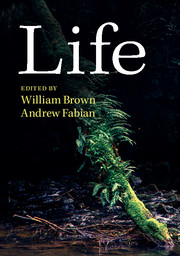Book contents
- Frontmatter
- Contents
- List of figures
- List of tables
- Notes on contributors
- Preface and acknowledgements
- 1 Life and death of a cell
- 2 The spark of life
- 3 From genomes to the diversity of life
- 4 Artificial life
- 5 Life in conflict: soldier, surgeon, photographer, fly*
- 6 Life in the ancient world*
- 7 Life in ruins*
- 8 The after-life*
- Index
Preface and acknowledgements
Published online by Cambridge University Press: 05 September 2014
- Frontmatter
- Contents
- List of figures
- List of tables
- Notes on contributors
- Preface and acknowledgements
- 1 Life and death of a cell
- 2 The spark of life
- 3 From genomes to the diversity of life
- 4 Artificial life
- 5 Life in conflict: soldier, surgeon, photographer, fly*
- 6 Life in the ancient world*
- 7 Life in ruins*
- 8 The after-life*
- Index
Summary
The boundary between life and non-life has been the guiding principle for this interdisciplinary exploration of the notion of life. The chapters that follow start with cells, bio-electrical mechanisms, evolutionary processes and artificial intelligence. Then, in the social world, they consider work on the boundary of death, the way we have envisaged life in the distant past, the metaphor of ruined life, and how first humanity imagined going beyond life.
Cells are the minuscule bricks of life. Ron Laskey describes how living things are kept alive and healthy by the balancing of life and death among the trillions of cells of which they are made. Different functions require cells to have very different life expectations, from a few days to the whole life of the body. Each cell’s birth and death is wholly altruistic. It is determined by what is needed for the best functioning of the body of which they are so tiny a part. The scale and complexity of what is required to keep a whole organism alive and healthy stretches our imagination. At the heart of every cell’s birth is the process of division and thus replication of its DNA, an act of, in terms of man-made things, incomprehensible precision.
- Type
- Chapter
- Information
- Life , pp. xiii - xviPublisher: Cambridge University PressPrint publication year: 2014

